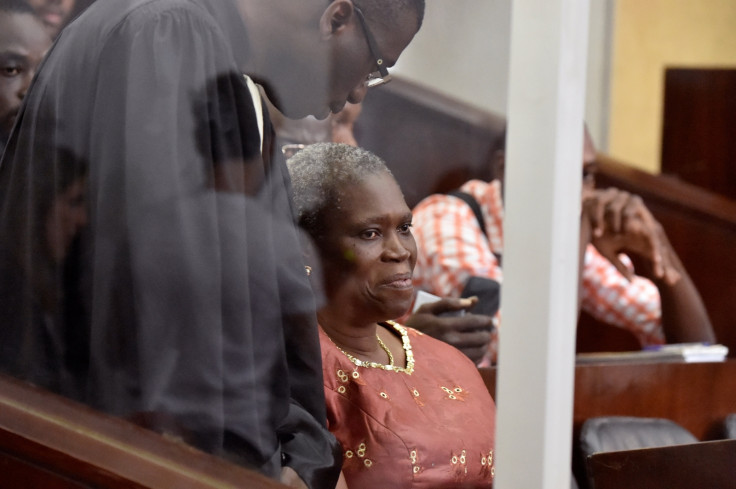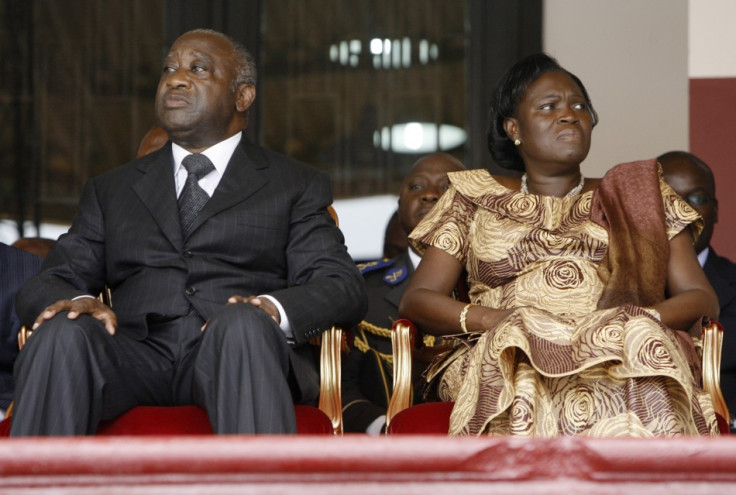Trial of Ivory Coast's former First Lady Simone Gbagbo is 'not credible' claims rights activists

A group of human rights organisations representing hundreds of victims have announced they would not participate in the trial of Côte d'Ivoire's (Ivory Coast) former first lady Simone Gbagbo for crimes against humanity. She was arrested in 2011, along with her husband, former President Laurent Gbagbo, and has already been sentenced to jail on a separate charge.
Her husband's refusal to cede office to Alassane Ouattara in November 2010 sparked five months of violence that claimed at least 3,000 lives, according to UN estimates. During the unrest over 150 women were raped or gang-raped, people faced summary executions and villages were burned down.
In March, the former first lady was sentenced to 20 years in jail for her role in the violence that followed the 2010 elections, after being convicted of "attacking state authority". Last week, Ivory Coast's supreme court rejected her appeal against the prison sentence.
FIDH, MIDH and LIDHO dismiss 'credibility' of trial
As the second trial of Simone Gbagbo opened before the Assize Court in the capital Abidjan on 30 May, three rights organisations − the International Federation for Human Rights (FIDH), Ivorian Human Rights Movement (MIDH) and Ivorian Human Rights League (LIDHO) − representing 250 victims and civil parties announced they would not participate in the trial. They object to everything being pinned on Simone Gbagbo alone, when there were others equally responsible for the atrocities that should stand trial with her.
From Abidjan, FIDH spokesman, Antonin Rabecq claimed the trial, where the first lady is appearing alone, is "held in a hurry" and that victims' rights have been violated casting doubts about the "credibility" of the trial.
"Our participation as civil parties to those proceedings arose from the belief that the Ivorian justice could face the huge challenge of the need for a judicial response to the post-election crisis," Rabecq said.
However, magistrates and investigators faced "blockages" in their search for the truth, and Simone Gbagbo appears before the court in the absence of those with whom she is accused of having planned and committed the most serious crimes, some of whom have now been charged with the same offences.

Victims' rights 'violated'
"It is in this context that our organisations have learned in an incidental manner and with amazement, the imminent upcoming trial of Mrs Simone Gbagbo. This amazement was even greater because the most basic rights of civil parties have been violated since our lawyers were never notified of the various steps that led to the organisation of this trial," Rabecq added.
"Therefore, how is it conceivable that, while the post-election crisis was punctuated by the perpetuation of the most serious crimes across the country with a multiplicity of perpetrators and victims in a tangle of criminal liability that justice must individualise, such a hastily organised trial with Simone Gbagbo as the only accused, can truly effectively bring justice to the victims?"
This comes despite the fact the organisations had always maintained publicly, in Côte d'Ivoire and on the international stage, the importance of the proceedings, welcoming any positive steps, such as the establishment of the Special Investigation Unit and Instruction (CSEI).
The rights organisations urged the judicial authorities to adopt a clear strategy, including holding a series of trials covering the different events of the post-election crisis.
Such an approach, based on analysis of the facts, evidence and testimony, would allow the courts to prosecute the main culprits in a coherent manner and to understand not only the "Gbagbo system" and its criminal drift after the presidential election 2010, but also the serious crimes committed by the Ivorian armed forces (FRCI) during their offensive in 2011.
Meanwhile, Laurent Gbabgo is standing trial at the International Criminal Court (ICC) for war crimes linked to the civil unrest. He is accused of having started a campaign of rape, intimidation and violence against opposition supporters.
© Copyright IBTimes 2024. All rights reserved.






